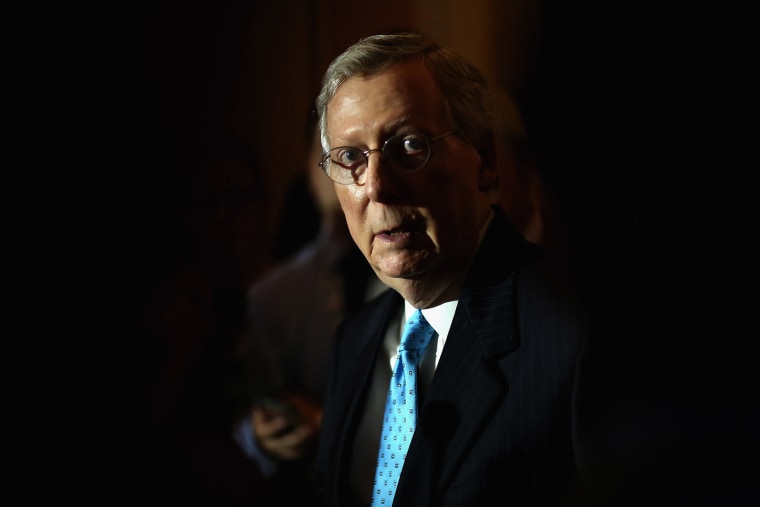If the U.S. House impeaches Donald Trump, as now appears likely, it would effectively serve as an indictment, which would be sent to the U.S. Senate for a trial. If "convicted" in the upper chamber by a two-thirds majority, the president would be removed from office.
There was some question in recent weeks as to whether the Republican-led Senate would even bother to consider the charges, though Senate Majority Leader Mitch McConnell (R-Ky.) acknowledged last week the process isn't altogether optional. "I would have no choice but to take it up," the Republican leader said. "How long you are on it is a different matter, but I would have no choice but to take it up based on a Senate rule on impeachment."
Those were not, however, McConnell's final thoughts on the matter. The Courier Journal in Louisville reported over the weekend on the Kentucky Republican's latest message, published to Facebook, which suggests, as far as a presidential trial is concerned, McConnell wants his supporters to know the fix is in.
"Nancy Pelosi's in the clutches of a left wing mob. They finally convinced her to impeach the president," McConnell says directly to the camera in a 17-second video. "All of you know your Constitution. The way that impeachment stops is a Senate majority with me as majority leader."But I need your help," he adds, standing in front of a picture of an elephant. "Please contribute before the deadline."
Two weeks ago, as the impeachment inquiry in the House was getting underway, Sen. Susan Collins (R-Maine) said she wanted to be cautious about taking firm stances on the presidential scandal because she was likely to be "a juror" deciding his political fate. The Maine Republican added that she didn't want to say anything that would suggest she's "prejudging" the accused.
McConnell -- by some measures, the "jury foreman" in the upcoming process -- has decided to be far less vigilant when it comes to maintaining the integrity of the process.
The Washington Post noted over the weekend, "Though a loyal Republican, McConnell has a history of expressing public concern with an embattled president in his own party. In 1973, McConnell, then a budding Kentucky politician, called the Watergate affair 'totally repugnant' and denounced the conduct of President Richard Nixon and some in his administration, as documented by McConnell biographer John David Dyche."
McConnell has changed a great deal over the last four decades.
